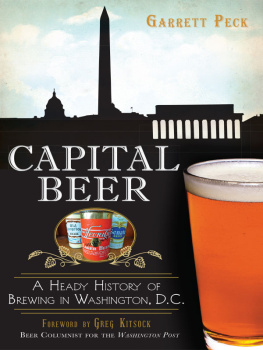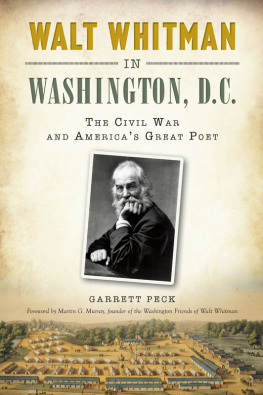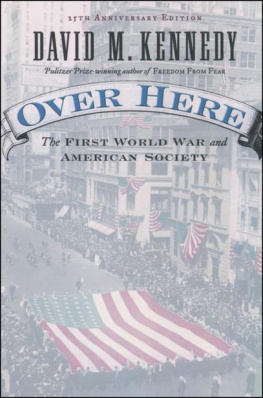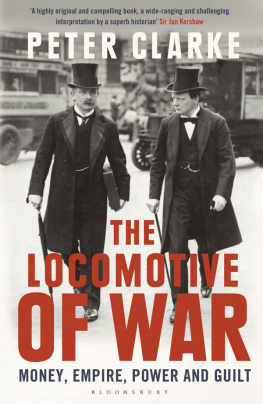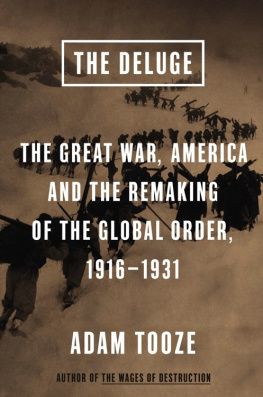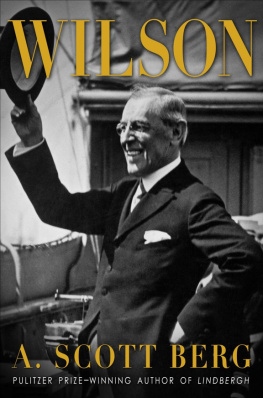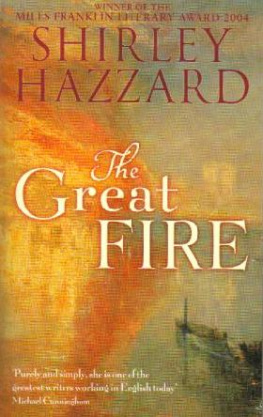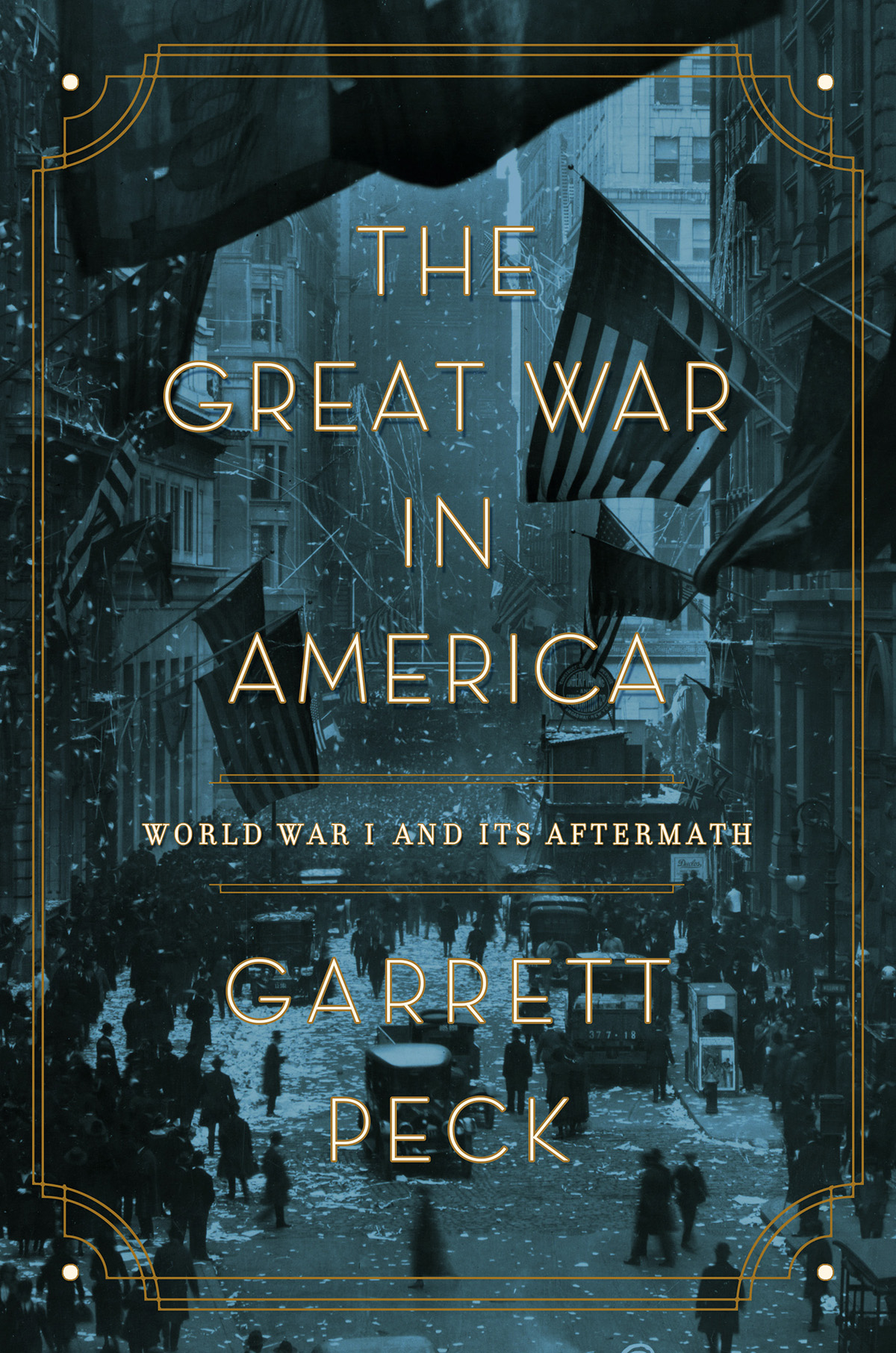Contents
Guide
Page List
THE GREAT WAR IN AMERICA
World War I and Its Aftermath
GARRETT PECK

Contents
ALSO BY GARRETT PECK
The Prohibition Hangover: Alcohol in America from Demon Rum to Cult Cabernet
Prohibition in Washington, D.C.: How Dry We Werent
The Potomac River: A History and Guide
The Smithsonian Castle and the Seneca Quarry
Capital Beer: A Heady History of Brewing in Washington, D.C.
Walt Whitman in Washington, D.C.: The Civil War and Americas Great Poet
THE GREAT WAR IN AMERICA
Pegasus Books, Ltd.
148 W 37th Street, 13th Floor
New York, NY 10018
Copyright 2018 Garrett Peck
First Pegasus Books cloth edition December 2018
Interior design by Maria Fernandez
All rights reserved. No part of this book may be reproduced in whole or in part without written permission from the publisher, except by reviewers who may quote brief excerpts in connection with a review in a newspaper, magazine, or electronic publication; nor may any part of this book be reproduced, stored in a retrieval system, or transmitted in any form or by any means electronic, mechanical, photocopying, recording, or other, without written permission from the publisher.
ISBN: 978-1-68177-878-5
ISBN: 978-1-68177-878-5 (ebk.)
Distributed by W. W. Norton & Company, Inc.
To my parents with love.
Mere anarchy is loosed upon the world,
The blood-dimmed tide is loosed, and everywhere
The ceremony of innocence is drowned
from The Second Coming, William Butler Yeats
T he Great War of 1914 to 1918 was the most important war of the 20th century. It was the first continent-wide conflagration in a century, and it drew much of the world into its fire. By the end of the conflict, four global empires and their royal houses had fallen, shattering the balance of power in Europe. The British and French broke up the fading Ottoman Empire, setting the artificial boundaries of the modern Middle East and building resentment that lingers to this day. The war catapulted Bolshevism onto the world, setting the stage for the Cold War that would last until the Soviet Union imploded in 1991. The punitive nature of the Treaty of Versailles, which forced Germany to assume blame for the Great War and pay the victors for it, undermined Germanys fragile democracy, and sowed the seeds for the 20th centurys most brutal dictator, Adolf Hitler. An estimated seventeen million people died, making the Great War the most costly and destructive war in human history, surpassed only by World War II.
The combatant nations in the Great War developed destructive weaponry that could kill vastly more people. Airstrikes, chemical weapons, and flamethrowers were first used, and submarines were unleashed to sever enemy supply routes. Heavy artillery, such as the French and Germans employed at the wars most symbolic battle, Verdun, inflicted massive casualties and obliterated the landscape, leaving behind muddy craters, broken barbed wire, toxic soil, and body parts. Machine guns made massed infantry attacks futile, yet generals still employed these assaults, only to see their men mowed down. The Great War was one everlasting siege, and bunkers and trenches came to symbolize the static nature of this war, the two sides separated not by a moat, but by a muddy wasteland called no-mans-land. Thousands of men could be killed over a few hundred yards while the front line barely budged. Total warfare unleashed war not just against a countrys army, but against its citizens, as each side attempted to undermine the other economically, militarily, and morally.
War leaves a scar on a nations psyche, one that never fully heals. I have been to Ypres (officially Ieper), Belgium and witnessed the nightly Last Post ceremony at Menin Gate commemorating the loss of so many people who fought for the British Empire in the Great War. It is a moving ceremony, and the British express genuine mourning for so many who died for so little. I have walked the battlefield at Verdun and seen the Hall of the Dead, an enormous ossuary holding the remains of 130,000 people, the intermixed bleached bones of many nationalities. Arlington, Virginia, is my home, and every Memorial Day it witnesses tens of thousands of Vietnam War veterans who descend on the nations capital in the motorcycle cavalcade known as Rolling Thunder. The veterans seek an answer to unanswerable questions: What good is war, and is the sacrifice ever worth it?
To which I might add with the Great War in mind: Can war solve the worlds problems? Can war bring peace? Or does war just create new grievances and new conflicts? The Second World War proved the bloody sequel, refighting unresolved issues and injuries to national pride.
This book focuses on America during the Great War. It was a remarkable time, one in which President Woodrow Wilson struggled to keep the country out of the war during his first term in office, then declared war on Germany at the start of his second term. Wilson became a wartime president, marshaling the countrys industrial might, its railroads and navy, and millions of soldiers to fight and win.
The Great War was an enormously contentious issue in the United States. The country debated for more than two and a half years whether to intervene. A third of the American population was first- or second-generation American, the highest ratio of foreign-born citizens in the countrys history, and there were major divisions in American society over the question of the war. German- and Irish-Americans detested the Allies, hawkish Anglophiles hated the Germans, while a sizable contingent of pacifists and socialists supported neither side. The country did little to prepare for the war except strengthen its navy. The World War found us absorbed in the pursuit of peace and quite unconscious of probable threat to our security, wrote General John Pershing, the commander who would lead American troops to victory. We would listen to no warnings of danger. We had made small preparation for defense and none for aggression.
The U.S. was late to enter the conflict when President Wilson ultimately decided Germanys belligerence demanded a military response. The United States declared war in April 1917 to protect itself from the threat of German submarines, but in his War Address President Wilson framed it as a high moral cause, saying, The world must be made safe for democracy. The Great War was the most idealistic war the United States ever fought.
The Wilson administration mobilized the economy on a scale not seen since the Civil War five decades earlier. Most everyone contributed toward the war effort, and millions of young men were drafted into the armed forces. Pershing wrote after the war, Americas part in the contest could be successful only by the combined efforts of the armies and the people. The man with the rifle was merely the privileged representative of a thousand others who were as deeply concerned in the result as he was.
More than 4.7 million Americans served in the Great Warand more than two million fought in Europe. The U.S. suffered 116,516 dead and 204,002 wounded, most of them in the last six months of the conflict when the American Expeditionary Forces got into the fight. American involvement tipped the balance against the German-led Central Powers and helped win the war. It earned the United States a negotiating seat at the Paris Peace Conference in 1919.


